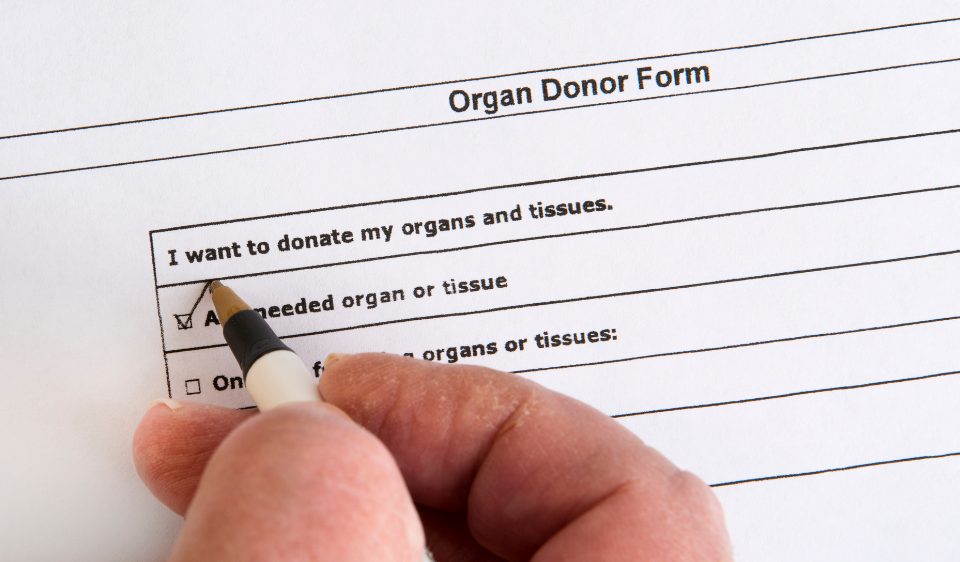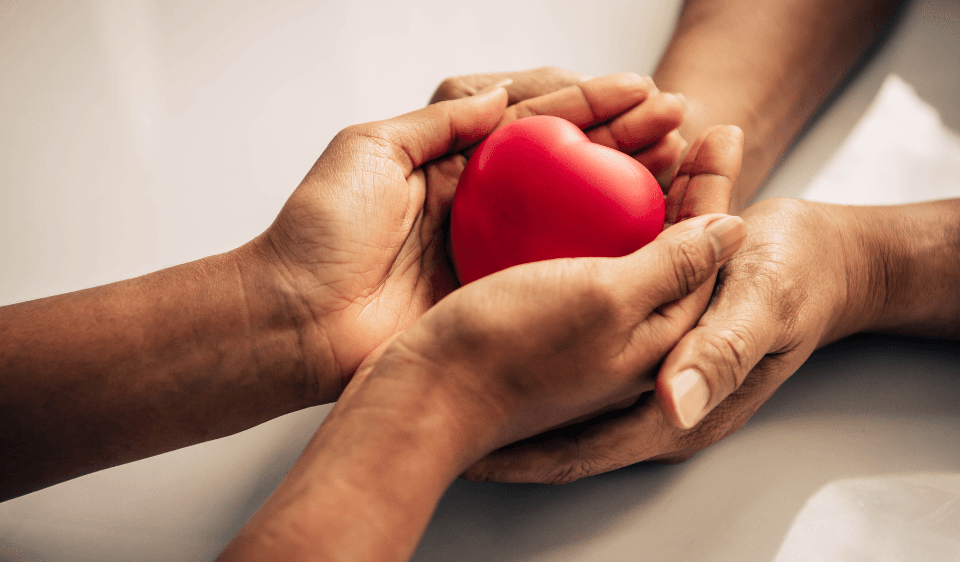Amidst the challenges and heartaches, there is an undeniably powerful source of hope – organ donation. One individual's donation has the power to enhance or save the lives of numerous recipients. A donated heart can restore vitality to someone on the brink of losing hope. A kidney can grant a patient a future free from dialysis. A liver can give a second chance to someone battling a life-threatening disease.
The Need for Organ Donation in New York
To truly grasp the importance of organ donation, we must first understand the scale of the need. In New York alone, thousands of individuals await organ transplants that can offer them a new lease on life. In accordance with the New York State Donate Life Registry, currently there are over 10,000 New Yorkers registered on the waiting list for organs, including hearts, lungs, kidneys, livers, and more. These are not just numbers; they represent sons, daughters, parents, and friends who yearn for the gift of life.
The harsh reality is that the supply of organs falls far short of the demand. Each day, individuals on the waiting list face the agonizing uncertainty of whether a suitable donor will become available in time. Unfortunately, not everyone is as fortunate as those who receive transplants, and some individuals lose their battle while waiting.
The remarkable aspect of organ donation is that it doesn't require superhuman feats; it only requires a compassionate heart and a willingness to make a difference. By choosing to become an organ donor, you have the power to transform lives and write stories of hope and renewal.
As we delve into the various facets of organ donation in New York, we will unravel the myths, explain the process, navigate the policies, and introduce you to the heroes behind this life-saving endeavor.
The Organ Donation Process Explained
If you wish to enroll as an organ donor. It's as simple as checking a box.
Registration
The first step is to register as an organ donor. In New York, you can do this in several ways, including through the Department of Motor Vehicles (DMV). During the application or renewal of your driver's license or ID card, you will have the option to register as an organ donor by simply checking a box. It's as simple as checking a box.
Online Registration
If you prefer or aren't eligible for a driver's license, you can also register online through the New York State Donate Life Registry. Visit their website, fill out a short form, and you're on your way to becoming a registered donor.
Donor Designation
You can also specify your donation wishes on your health care proxy or in your living will. Make sure to inform your family about your decision, as they may be consulted if the need arises.
Identification
Registered donors receive a heart symbol on their driver's license or state-issued ID card. This emblem signifies your commitment to saving lives through organ donation.
Medical Evaluation
When the time comes, medical professionals will assess your suitability as a donor based on various factors, including age, medical history, and organ condition. Being a registered donor does not guarantee donation; it simply expresses your willingness.
Common Organ Donation Myths and Misconceptions
Organ donation can be surrounded by myths and misconceptions that discourage potential donors. Let's dispel some of the most common misconceptions:
Myth 1: "I'm not eligible to be a donor because of my age."
Fact: There is no age limit for organ donation. People of all ages, from newborns to the elderly, can make a difference through organ and tissue donation. What counts most is your health condition during the donation process.
Myth 2: "Organ donation is against my religion."
Fact: Most major religions, including Christianity, Islam, Judaism, Buddhism, and Hinduism, support organ donation as an act of compassion and charity. If you have concerns, consult with a religious leader for guidance.
Myth 3: "Doctors won't save my life if they know I'm a donor."
Fact: Medical professionals are dedicated to saving lives, and they follow strict ethical guidelines. The decision for organ donation arises when all possible life-saving interventions have been exhausted, and healthcare experts confirm the patient's irreversible brain death or inability to recover.
Myth 4: "My family will be burdened with the costs of donation."
Fact: The costs associated with organ and tissue donation are borne by the transplant recipient or their insurance, not the donor's family. Donation should never create a financial burden.
Myth 5: "I can't have an open-casket funeral if I'm an organ donor."
Fact: Organ donation is a respectful and surgical procedure that leaves no visible scars. It does not affect the possibility of an open-casket funeral. Funeral arrangements proceed as usual, and the donor's body is treated with utmost care and respect.
By dispelling these myths, we hope to alleviate concerns and encourage more individuals to make the life-affirming choice of becoming an organ donor.
Organ Donation Legislation and Policies in New York
Understanding the legal framework and policies surrounding organ donation in New York is essential for prospective donors. Here, we delve into the regulations that govern this life-saving process:
New York State Donate Life Registry
New York operates the Donate Life Registry, a secure database where residents can register as organ donors. This registry ensures that your wishes are documented and accessible when needed.
Department of Motor Vehicles (DMV)
The Department of Motor Vehicles (DMV) has a vital part in facilitating organ donation. When submitting your application for a new or renewed driver's license or ID card, you have the chance to indicate your interest in being an organ donor. This streamlined process effectively conveys your intention to contribute to this life-saving cause.
Uniform Anatomical Gift Act (UAGA)
New York follows the UAGA, which outlines the legal framework for organ donation. It clarifies the process of organ recovery, ensuring that the donor's wishes are respected.
Recent Legislative Changes:
New York has made efforts to streamline and encourage organ donation. Stay informed about any recent legislative changes that may impact the organ donation process.
The Impact of COVID-19 to Organ Donation
The onset of the COVID-19 pandemic has influenced various spheres of our lives, significantly influencing the landscape of organ donation and transplantation. In this segment, we examine the ways in which the pandemic has influenced the realm of organ donation in New York.
Disruptions to Organ Transplants
At the height of the pandemic, organ transplant procedures were temporarily halted or reduced due to healthcare system strain and concerns about patient safety.
Safety Measures
Organ procurement organizations and transplant centers implemented rigorous safety measures to protect both donors and recipients. These measures have enabled the resumption of transplant procedures.
Impact on Donor Registration
The pandemic led to fluctuations in donor registration rates. Some individuals hesitated to register due to concerns about hospitalization and organ recovery during a health crisis.
Resilience of the Organ Transplant Community
Despite challenges, the organ transplant community in New York exhibited resilience. Surgeons, transplant coordinators, and donors continued to work tirelessly to save lives.
Understanding the impact of COVID-19 on organ donation and transplantation is crucial in today's landscape. It emphasizes the importance of preparedness, safety, and the ongoing need for donors.
By navigating the legal landscape and considering the influence of the pandemic, we gain a deeper understanding of the organ donation process in New York. In the following sections, we will explore the advantages of organ donation and guide you on the steps to register, enabling you to create a positive impact.

Benefits of Organ Donation in New York City
Organ donation isn't just about giving a part of yourself; it's about giving the gift of life. In this section, we'll explore the profound impact organ donation has on recipients and donors alike:
Recipient Stories
Hear the inspiring stories of individuals whose lives have been transformed by organ transplants. From regaining health to experiencing milestones they never thought possible, these recipients' stories are a testament to the power of donation.
Donor's Legacy
Uncover the profound impact of donors' legacies as their gifts continue to make a difference. Families take solace in the understanding that their beloved ones' generosity has saved lives and left a lasting imprint.
Physical and Emotional Benefits:
For recipients, organ transplantation often means a return to a healthier, more vibrant life. It can end years of suffering and offer the chance to enjoy precious moments with loved ones.
Shared Humanity
Organ donation reinforces our shared humanity. It transcends race, religion, and background, emphasizing our collective responsibility to care for one another.
What to Know about Donor Registration in New York City
Signing up as an organ donor is an easy yet transformative gesture. Here, we offer practical guidance on the steps to become a registered donor in New York:
DMV Registration
If you possess a New York driver's license or ID card, you can easily sign up as a donor via the DMV. It's as simple as ticking a box during your license application or renewal.
Online Registration:
Not a driver? No problem. You can also register online through the New York State Donate Life Registry. Simply visit the website, complete a brief form, and you'll be a registered donor.
Informing Your Family
While registration is crucial, it's equally important to inform your family of your decision. In the event of your passing, they may be consulted, so it's vital that they're aware of your wishes.
Privacy and Confidentiality
Rest assured that your decision to become an organ donor is kept confidential. Medical professionals only access this information when necessary.
Community Outreach and Education
Organ donation awareness isn't limited to individuals; it thrives within communities. In this section, we spotlight local initiatives, campaigns, and organizations dedicated to spreading organ donation awareness in New York:
Nonprofits and Advocacy Groups
Learn about the organizations actively engaged in raising awareness and promoting organ donation. These groups work tirelessly to educate the public, support donor families, and advocate for policy changes.
Community Events and Workshops
Discover opportunities to engage with your community through organ donation awareness events and workshops. These gatherings provide a platform to learn, connect, and make a difference.
Supporting the Cause
Whether through volunteering, fundraising, or participating in awareness campaigns, you can support the cause in various ways. Get involved and be a part of the movement to save lives.
Together, we can amplify the message of organ donation awareness and inspire more New Yorkers to become donors, creating a brighter future for those in need of life-saving transplants. In the following sections, we'll delve into organ donation statistics and provide additional resources for those interested in learning more or getting involved.
Learn Organ Donor Statistics
To better understand the impact of organ donation in New York, it's crucial to consider the statistics surrounding organ transplantation:
The Need in the USA
Across the United States, more than 105,000 people are currently in need of organ transplants. Astonishingly, only 63% of eligible individuals are enrolled as organ and tissue donors.
The Need in New York State
Within New York State alone, over 8,000 individuals are anxiously awaiting organ donations. However, the enrollment rate is 47%, highlighting the critical importance of increasing donor registrations.
National Organ Transplant Waitlist
On the national scale, approximately 105,000 patients are on the organ transplant waitlist. Sadly, another person is added to this list every nine minutes.
The Grim Reality
Unfortunately, 17 individuals in the United States lose their lives daily while awaiting an organ transplant, underscoring the critical need to boost donor participation.
Enrollment Rates
Currently, 63% of adults aged 18 and older in the U.S. are registered as organ and tissue donors, underlining the potential to save lives through increased enrollment.
Lifesaving Donations
In 2022, 21,369 people in the U.S. selflessly donated organs, comprising 14,903 deceased donors and 6,466 living donors. These donations resulted in 42,887 patients receiving lifesaving organ transplants.
The Situation in New York State:
New York State is home to approximately 8,200 patients listed on the national organ transplant waitlist, with 1,150 individuals waiting for more than five years for a transplant.
Daily Additions
On average, 12 New York State patients were added to the national organ transplant waitlist every day in 2022, emphasizing the continuous need for donors.
Current Enrollment Rates in New York State
Within New York State, 46% of adults aged 18 and above have taken the initiative to register as organ and tissue donors.
Losses Incurred
Unfortunately, in 2022, 394 patients in New York State lost their lives while waiting for an organ transplant.
Lifesaving Contributions
In 2022, 1,002 generous individuals in New York State donated organs, consisting of 598 deceased donors and 404 living donors. These selfless acts resulted in 3,396 patients in the state receiving lifesaving organ transplants.
The statistics underscore the critical need for organ donation in New York and the United States as a whole. By becoming a registered organ donor, you have the potential to make a profound impact on countless lives, offering hope, healing, and a second chance to those in need.
Supporting Resources
For those interested in delving deeper into organ donation awareness or seeking additional information, a wealth of resources is available:
New York State Donate Life Registry
Organ Procurement Organizations (OPOs) in NY
United Network for Organ Sharing (UNOS)
Conclusion: Igniting the Flame of Hope Through Organ Donation
Organ donation is not just a medical procedure; it's an act of compassion, a testament to our shared humanity, and a gift of hope. By enrolling as an organ donor, you possess the ability to potentially save multiple lives, presenting the invaluable gift of well-being, joy, and a more promising future to those in need. You join a remarkable community of individuals who, despite challenges, opt for generosity and compassion.
We trust that this article has provided you with valuable information, motivated you to contemplate organ donation, and equipped you with the necessary tools to proceed. Together, as informed and empathetic individuals, we can help close the disparity between the supply and demand of organs, ensuring that nobody waits futilely for an opportunity for a healthier future.

